In August 2010 Moscow was suffocating in the smog. Mayor Yury Luzhkov, who had been sitting at the feeding trough of government for many years, had evidently lost any sensitivity to the problems of Muscovites, went to Austria on holiday. This was not only the beginning of the end of his career, but also of a chain of events that launched Dmitry Medvedev into independent political orbit.
The dethroning of Mayor Luzhkov in September 2010 not only ended a controversial political career, it also launched Medvedev into an independent political orbit
The president, to put it delicately, had no love for the Moscow mayor and was infuriated by Luzhkov’s cynical indifference to the ecological catastrophe in Moscow. Medvedev began to work on securing the dismissal of the powerful mayor, one of the most influential politicians of the last two decades.
Need it be said that Prime Minister Putin (the more influential member of the duumvirate, described in 2007 as the “national leader” by parliamentary speaker Boris Gryzlov) did not see the pragmatic necessity for a change of mayor, whose term was due to end in 2011 anyway? But the act of dismissing Luzhkov had, naturally, to be coordinated between the two leaders of Russia.
Observers immediately announced that this was a “test” of Medvedev’s independence. Luzhkov’s dismissal would mean the President could take decisions by himself; if the mayor remained in post, it would mean he could not. But the Luzhkov case was actually about something else i.e. the President’s ability to make a watertight case for the mayor’s dismissal in his argument with the “national leader”. From all appearances, his will and persistence carried the day.
In his actions ordering a public inquiry into the building of a highway through Khimki forest, Medvedev showed that he was prepared to listen to the opinion of civil society, going over the heads of the bureaucracy, and even… Putin.
The second “test” was the situation surrounding the forest of Khimki. The protests of civil activists and ecologists against the construction of a section of the new Moscow – St. Petersburg highway through the forest could no longer be ignored. Although in the traditions of the Russian authorities, it would have been quite natural simply not to notice the indignation of the public (in their terms, “marginal figures”), which was gradually becoming politicized. Additionally, the Supreme Court of the Russian Federation and the Prime Minister had approved the construction as legal. But at the end of August Medvedev ordered a public inquiry and a panel discussion of experts, stopped construction of the road and showed that he was prepared to listen to the opinion of civil society, going over the heads of the bureaucracy, and even… Putin.
At the beginning of September, the president had a meeting with a group of Russian and foreign political scientists at the World Political Forum in Yaroslavl. As one of the people invited to this meeting, I asked Medvedev whether he intended to continue to use these forms of direct democracy that were so unusual for Russia. Among other things, he said in his reply: “For me this is a natural modus operandi, so I shall carry on doing the same thing. Some people don’t believe me, saying it’s all PR, so to speak, just to score points and that it’s not real politics. This is wrong. This course of action results in concrete presidential instructions and the machine of government swings into action. The examples you give illustrate this most eloquently. In a number of cases I don’t predetermine the results of the discussion, which is quite normal… Will I continue to work like this? I will, because I believe that this is part of political culture and that same direct democracy we are discussing today. Some people may not be comfortable with working this way and that’s their choice. But I believe that they have no future as politicians.”
Among the examples I had given were the protests the President already knew about against the construction of the Gazprom tower (Okhta Centre) in St. Petersburg. This was practically impossible to prevent, since the gas monopoly is a sort of second state budget in Russia. Jumping ahead, I will say that, as a result, by the end of the year the Okhta Centre had, as it were, been exchanged for Khimki forest. Thanks to the President, the construction of the “gas-scraper” was stopped. But the Khimki highway construction was given the go-ahead, though with major environmental caveats: no infrastructure to be built next to the road, which will be fenced off with noise-protective screens. This was a kind of concession to Vladimir Putin – many of his cronies have interests in the construction, after all…
The tandem model makes no allowances for one head to argue with the other. This model is built on the principle of complementarity: the Prime Minister works with simple people, nurturing the image of a pragmatic manager, while the President works with a more sophisticated audience, which stands to attention at the words “gadgets” and “modernization”
Khimki forest was declared a defeat for Medvedev. To make it worse it all happened after Medvedev’s rather dull Address to the Federal Assembly, and before Putin’s fantastically aggressive speech during his “live TV phone-in”, which increasingly reminds one of Fidel Castro’s speeches that went on for hours. He spoke out particularly harshly on the topic of Khodorkovsky and liberal opposition politicians. Putin’s tougher line has given a clear signal that the electoral season has begun, and that for this season he has his own programme. It may not be particularly clear, but it differs from Medvedev’s political path.
There was a similar moment in the last election campaign. The prelude was Putin’s “Munich speech” in February 2007, where he revealed his entirely Soviet priorities for his foreign policy; the culmination was his speech at Luzhniki in November 2007, when oligarchs and liberals came under fire. Putin’s elegiac narrative in this speech, and at the recent TV phone-in, put the blame fairly and squarely on these figures for selling off Russia’s wealth and ruining the lives of the Russian people. Not for nothing was Putin’s Luzhniki solo christened “Triumph of Vova [Vladimir]” (in poetic reference to Leni Riefenstahl’s “Triumph of the Will”).
It would seem that the tandem model makes no allowances for one head to argue with the other. This model was initially built on the principle of complementarity: the Prime Minister works with simple people, nurturing the image of a pragmatic manager, while the President works with a more sophisticated audience, which stands to attention at the words “gadgets” and “modernization”. In this way the two leaders had the entire territory of the country and all social strata covered: they were a kind of two-headed “president of all the Russians”. This model – and here credit must be given to the Kremlin’s spin doctors, primarily the first deputy head of the presidential administration Vladislav Surkov – did actually work. But precisely because the two heads of state did not reach an agreement beforehand as to which of them would stand for the presidential election in 2012, a split in the tandem is inevitable. Or – given the unpredictable nature of Russian politics – almost inevitable.
In short, the rules of the game did not provide for any opposition. This is why few people saw any intrigue in Medvedev’s pre-New Year conversation with the heads of the federal television channels, the people responsible for manipulating the minds of the electorate. But the impossible happened, not unlike a mutiny at sea. The most striking thing was the part about Mikhail Khodorkovsky and Putin’s careless remark contravening the presumption of innocence that “a thief belongs in jail”. This is what the President had to say on the subject: “Neither the President, nor any other official in state service, has any right to express a position about this matter or any other matter before the moment the sentence is delivered.”
Since this moment, the tandem as a working structure has being showing signs of strain. Since this moment, Putin has not simply begun to demonstrate that he supports investment – both political and fiscal – into maintaining stability. He has actually started to drag the country back to its Soviet past (especially symptomatic were his proposals made before the New Year to restrict the number of jury trials and restore the Soviet regulation of criminal liability for violations of the passport regime). Medvedev has stopped imitating the idea of technological modernization – people have even begun to place hopes in him for political modernization. And this is despite the compromise on the Khimki forest and the guilty verdict for Khodorkovsky.
After everything that has happened, the most likely scenario that the tandem will be preserved in its previous form (Medvedev as President, Putin as Prime Minister) with no change in the bare bones of their policy no longer seems the most important thing. The possibility of a deus ex machina – a third figure – remains very tenuous. Sergey Sobyanin, the new Moscow mayor, is considered to be an effective manager, but he has yet to demonstrate by his actions that he is capable of becoming a truly popular politician. Although he is the one who is predicted to take the role of the third figure. The main intrigue still revolves around who will try to take all the power, and not just make do with fragments of it – Putin or Medvedev.
The intrigue continues. For the “dear Russians”, as Boris Yeltsin called the citizens of Russia, the year 2011 is going to be a very difficult one.
Read more
Get our weekly email
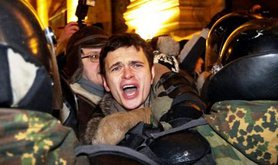
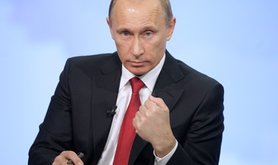
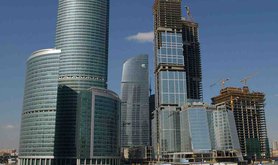

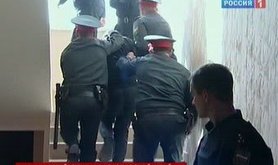
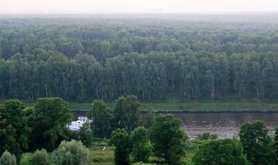
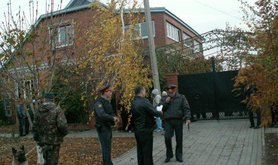
Comments
We encourage anyone to comment, please consult the oD commenting guidelines if you have any questions.